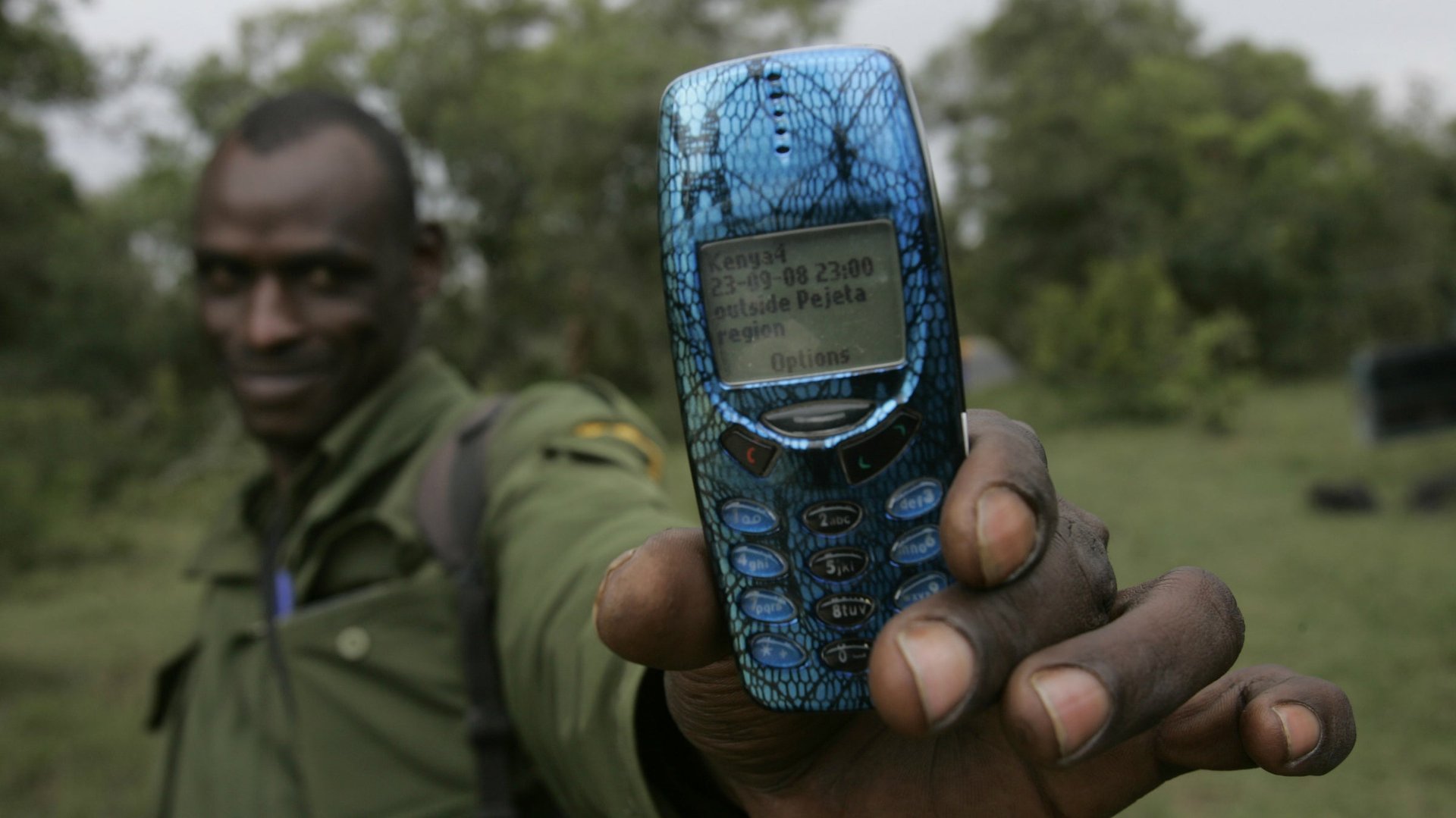Will Kenya’s elections transform the text message from deadly weapon to peace offering?
This election, Kenyans are taking back their SMS.


This election, Kenyans are taking back their SMS.
The East African country is still reeling from bloody and divisive conflict among tribes and communities from the last time it went to the polls in 2007. More than 1,000 people died. Notably, text messages were used to start rumors, instill fear, and mobilize perpetrators to violence. An example of this blatant call to arms:
Fellow Kenyans, the Kikuyu’s have stolen our children’s future… we must deal with them in a way they understand… violence.
And this:
No more innocent Kikuyu blood will be shed. We will slaughter them right here in the capital city. For justice, compile a list of Luo’s you know… we will give you numbers to text this information.
Even as early indications point to a largely peaceful election period–with the Carter Center noting that election preparations have been “generally peaceful thus far”–collective memories run deep. In a bid to break down barriers between communities, build trust, and strengthen domestic dispute resolution mechanisms and institutions, our peace-building NGO is using the same SMS technology in the slums of Nairobi, and in the Rift Valley, to focus potential warring parties behind a common Kenyan identity.
Founded in 2011, Sisi Ni Amani, meaning “We Are Peace” in Swahili, is one of several peacebuilding organizations that emerged following the 2007 post-election violence. It has just shy of 60,000 subscribers, and got a big boost recently: 50 million free SMSes from East Africa’s biggest mobile phone company Safaricom, which saw its network heavily misused in the 2007-’08 violence. Kenya has a high penetration of mobile phones–63% in 2011, according to the Communications Commission of Kenya—and we can target messages to subscribers by demographic, gender, and geography.
Our efforts (and SMSes) began long before Monday’s election. All messages are in English and Swahili and we send them in the language chosen by the subscriber. In Korogocho, also known as Koch, we sent this SMS during the nomination process:
Let us maintain and promote peace during this nomination period. We are brothers and sisters and we always will be. Tudumishe amani Koch!
As the process was delayed and people became impatient, we sent a follow-up:
We the people of Koch let us continue to maintain peace and calm as we complete the nomination process. We can be proud of the peace we have kept!
Sisi Ni Amani is among a number of organisations—including the crowdsourcing mapping platform Ushahidi, and its sister initiative Uchaguzi, meaning “elections” in Swahili—to deploy technology to mitigate the possibility of violence these elections.
Importantly, the messages are written collaboratively by members of the communities. Through creating messages of peace and solidarity, reminding Kenyans of the high personal stakes, and encouraging the use of legal instruments in settling disputes, communities build their own capacity to confront the spectre of conflict, and attempts by politicians to engineer tribal-based violence and divide people.
Thus, the same networks that disseminate rumors can be used to dispel them. Community members then carefully weigh and gauge language to craft messages that can counter the insidious impact of hate speech, rumors, so-called “coded language”–or any of the other terms encapsulating dangerous speech that has entered into common parlance in Kenya today.
Recently, in an area near Dandora, two people were stabbed, and the situation that could have led to escalating killings and violence. We sent the following message:
We the people of Dandora let us stand strong to promote peace in our community. Only with peace can we find lasting solutions to our problems. Tudumishe amani!
One SMS message may seem a humble, even futile, tool, given the scale of the political challenges facing Kenya, but sometimes, there are glimpses that it’s working and putting the brakes on the cycle of violence. We know because we’re starting to get messages back, too. One anonymous sender from the Nairobi slum of Dandora wrote:
We were planning to avenge the death of our friends who were killed by the gangs. But after we received the message, we changed our approach and thought that revenge would not bring our friends back.